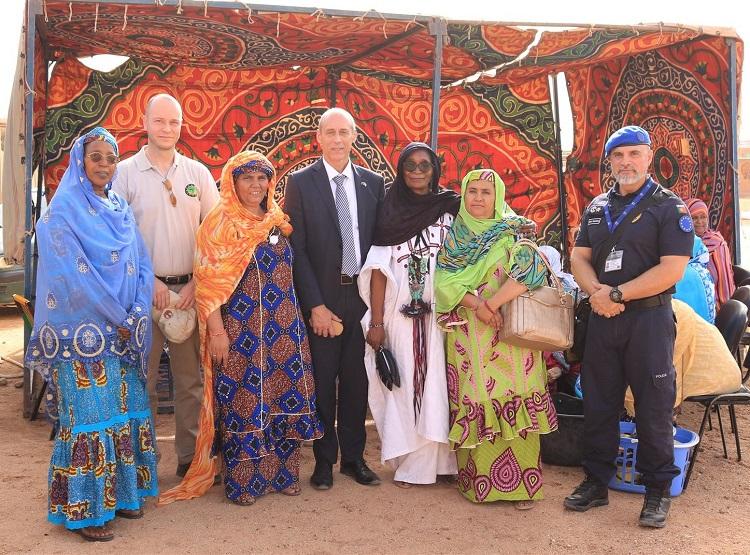Migration: EUCAP Sahel Niger as bridge builder between civil society and authorities

Launched in 2012, EUCAP Sahel Niger contributes to the development of a coherent, sustainable and human rights-based approach amongst the various Nigerien security agencies in the fight against terrorism, organised crime as well as against irregular migration and associated criminal activities. In 2015, the Nigerien government adopted a law to fight against people smuggling and protect migrants that followed the shocking discovery of nearly one hundred migrants, mostly children and women, who died of thirst in the desert in 2013. EUCAP Sahel Niger is assisting the Nigerien authorities to implement the adopted legislation to counter traffickers and smugglers.
As High Representative / Vice-President Federica Mogherini said: "This is the partnership approach: defining the needs; working with the local authorities; setting the highest possible standards when it comes to human rights protection and putting the right resources at the disposal of those who know the local situation better".
For the population of Agadez it was vital to understand the new law. Upon initiative of EUCAP Sahel Niger a group of Nigerien women leaders attended two training sessions, this spring, by an expert of the Nigerien National Agency for the Fight against Trafficking in Persons and Illicit Trafficking of Migrants who came to answer their questions about the new law and its implementation. The meetings really changed everything, says Ms Azara, president of a women's group:
"There wasn't much trust between civil society and the police forces. This and the other meeting was a chance to meet the authorities and ask any questions – like an open space for all the questions we had in our hearts. Representatives of the three law enforcement agencies were present. The meetings allowed us to better understand one another and helped us develop mutual trust. It had a huge impact on all of us who participated. We could learn about the consequences of people smuggling and human trafficking. And it allowed us since to pass that knowledge on, to other women, and to our husbands, sons and daughters".
It is not for the first time that Ms Azara interacted with the European Union. She used to be the mayor of Agadez. In 2017, as president of the women's group, she helped distributing assistance by the European Union Delegation to Niger, supporting families to get a livelihood as they could no longer make money from smuggling and housing or selling things to passing migrants.
Ms Azara gave the families in Agadez cows, goats, refrigerators and sewing machines. "It represented a real change and improvement", she says, and further underlines that the credit her women's organisation gets for EU supported projects should actually go to the European Union.
Ms Bartsch, EU Anti-Trafficking Adviser at the Agadez substation of EUCAP Sahel Niger, says that
"it was an incredible experience working with the women leaders. They were able to create a big impact with only a limited amount of funds. It is very important that we continue working together with these women groups. Because they are an important voice to the population and play an important role also in the prevention of conflict and crimes. It is the role of the women to pass on the ethics and morals to the younger generation".
By bringing people from a vast region together for just a few meetings, in Agadez and Arlit, Ms Bartsch and EUCAP Sahel Niger became a bridge between the women leaders, the authorities and law enforcement agencies, helping to create trust as well as finding solutions to problems. The interest was so large that the number of participants doubled.
